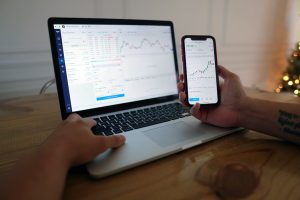The forex market is the largest financial market in the world, with an estimated daily turnover of over $5 trillion. It is a decentralized market, meaning that it has no physical location and operates 24 hours a day, five days a week. The forex market is also highly regulated, with various regulatory bodies playing a crucial role in ensuring its integrity and stability.
One of the regulatory bodies that oversees the forex market is the Options Clearing Corporation (OCC). The OCC is a self-regulatory organization that was founded in 1973 to provide clearing and settlement services for exchange-traded options. Over time, the OCC’s role has expanded to encompass other financial instruments, including forex derivatives.
The OCC’s primary responsibility is to ensure the safety and stability of the options and forex markets by acting as a central counterparty. Essentially, the OCC becomes the buyer to every seller and the seller to every buyer, which eliminates the risk of default by either party. This process is known as novation, and it helps to mitigate counterparty risk, which is one of the biggest risks in the forex market.
In addition to providing clearing and settlement services, the OCC also plays a critical role in regulating the forex market. The OCC sets standards and rules for its members, which include banks, broker-dealers, and other financial institutions that trade forex derivatives. These rules cover a wide range of issues, including risk management, margin requirements, and trade reporting.
The OCC also works closely with other regulatory bodies to ensure that the forex market operates in a fair and transparent manner. For example, the OCC is a member of the Financial Stability Oversight Council (FSOC), which was established by the Dodd-Frank Wall Street Reform and Consumer Protection Act of 2010. The FSOC is responsible for identifying risks to the financial system and coordinating the efforts of various regulatory agencies to mitigate those risks.
Another regulatory body that oversees the forex market is the Commodity Futures Trading Commission (CFTC). The CFTC is an independent agency that was established in 1974 to regulate commodity futures and options markets in the United States. In 2000, the CFTC was given the authority to regulate the retail forex market.
The CFTC’s primary responsibility is to protect market participants from fraud, manipulation, and other abusive practices. To achieve this goal, the CFTC sets rules and regulations for forex brokers and dealers, requires them to register with the agency, and conducts regular audits and inspections. The CFTC also has the power to investigate and prosecute individuals and firms that violate its rules.
In addition to the OCC and the CFTC, other regulatory bodies that oversee the forex market include the National Futures Association (NFA), the Financial Industry Regulatory Authority (FINRA), and the Securities and Exchange Commission (SEC). The NFA is a self-regulatory organization that oversees forex brokers and dealers, while FINRA regulates broker-dealers that trade securities. The SEC is responsible for enforcing federal securities laws and regulating securities markets in the United States.
In conclusion, the forex market is highly regulated by various regulatory bodies, including the OCC, CFTC, NFA, FINRA, and SEC. These regulatory bodies work together to ensure that the forex market operates in a fair, transparent, and stable manner. They set rules and regulations for forex brokers and dealers, conduct audits and inspections, investigate and prosecute violations, and provide oversight and guidance to market participants. As a result, investors and traders can have confidence in the integrity of the forex market and its participants.





